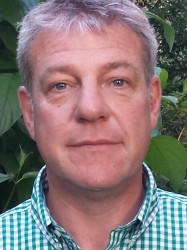BibTex format
@article{Chandra:2018:10.1007/s12355-018-0607-1,
author = {Chandra, VV and Hemstock, SL and Mwabonje, ON and N'Yeurt, ADR and Woods, J},
doi = {10.1007/s12355-018-0607-1},
journal = {Sugar Tech},
pages = {692--699},
title = {Life cycle assessment of sugarcane growing process in Fiji},
url = {http://dx.doi.org/10.1007/s12355-018-0607-1},
volume = {20},
year = {2018}
}

